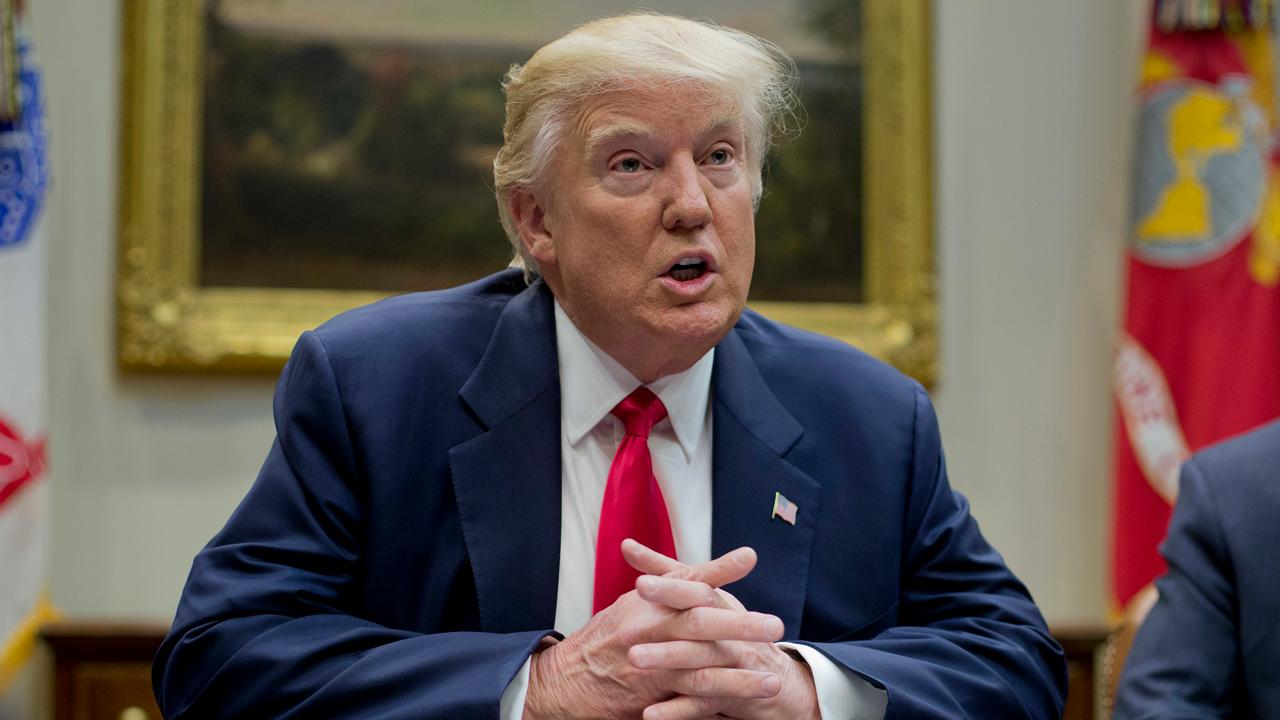Senate GOP struggles with deficit in work on budget, taxes
Senate Republicans are struggling with how many billions of dollars President Donald Trump's tax code overhaul will add to the deficit as they work on a GOP budget plan that's a prerequisite to any far-reaching change in the nation's tax system.
Senate Majority Leader Mitch McConnell and GOP members of the Budget Committee are meeting Tuesday with two top Trump administration officials to make progress on forging the budget plan, which is required to stave off potential Democratic blocking tactics and pass the subsequent tax bill only with GOP votes.
The as-yet-undrafted bill to overhaul the tax code is the top priority for Trump and Republicans after the collapse of their effort to dismantle Barack Obama's health care law. Trump's top economic adviser, Gary Cohn, and Treasury Secretary Steven Mnuchin are meeting with McConnell, R-Ky., and budget panel members.
"From my standpoint, let's set ourselves up for success on tax reform," Sen. Ron Johnson, R-Wis., a member of the committee, said before the meeting.
Mnuchin signaled ahead of the meeting that the administration would be open to changes sought by lawmakers to improve the chances for passage of a tax overhaul this year. In an interview with CNBC, Mnuchin said the administration would "absolutely" consider making tax cuts retroactive to the start of this year if overhaul legislation didn't pass until 2018.
In addition, the administration would consider including an infrastructure spending bill as part of the tax legislation, Mnuchin said.
Capitol Hill Republicans have promised that the tax rewrite will be "revenue neutral" and not add to the nation's $20 trillion-plus debt, but they are in fact counting on budget maneuvers to find hundreds of billions of dollars to help maximize cuts to corporate and individual tax rates. For starters, they are going to assume the tax legislation will mean higher economic growth and greater future tax revenues.
Underscoring the president's desire for tax legislation, Trump was hosting a bipartisan group of senators for dinner at the White House on Tuesday, including a trio of moderate Democrats from states Trump won last November and whose votes he'd like to have on a tax bill.
Democratic Sens. Joe Manchin of West Virginia, Heidi Heitkamp of North Dakota and Joe Donnelly of Indiana are to be joined at dinner by Republican Sens. John Thune of North Dakota, Pat Toomey of Pennsylvania and Orrin Hatch of Utah, the White House said.
Manchin, Heitkamp and Donnelly are the only Democratic senators who did not sign a letter addressed to Republican leaders and Trump that said the Democratic caucus would not support a tax overhaul that cuts taxes for the "top 1 percent" or adds to the government's $20 trillion debt.
Heitkamp traveled with Trump aboard Air Force One to an event in her home state last week where he spoke broadly about the tax plan. Trump pitched the senator on the overhaul, calling her a "good woman." Heitkamp said after the event that she needs to see the details first.
House action has been held up by a battle between moderates and conservatives over whether to pair spending cuts with the filibuster-proof tax measure. Senate action has been on hold while the House struggles.
An impasse could doom the tax overhaul effort.
GOP aides say the Senate panel is also likely to reject a House plan to link $200 billion in spending cuts to the tax legislation — a key demand of House conservatives.
The momentum toward deficit-financed tax cuts runs counter to longtime promises from top Capitol Hill leaders that this year's effort to rewrite the tax code wouldn't add to the government's $20 trillion-plus national debt. And it sets up a scenario in which many of the promised new tax rates would expire after 10 years. That's because of the Senate's arcane rules.
On the budget panel, Sen. Bob Corker, R-Tenn., is hoping to limit the deficit cost of the tax effort, while Toomey is on the other end of the spectrum favoring more robust deficit-financed tax cuts. GOP leaders have asked them to try to craft an agreement among the 12 budget panel Republicans. Any Republican defection on the budget plan would deadlock the narrowly divided committee.
"I'm a fiscal hawk, OK? I believe in pro-growth tax reform and I believe that's a mechanism toward lowering deficits," Corker said Monday. "But I'm also someone who wants to be realistic about all of this, and not let this just be party time that takes us no place but massive deficits down the road."




















